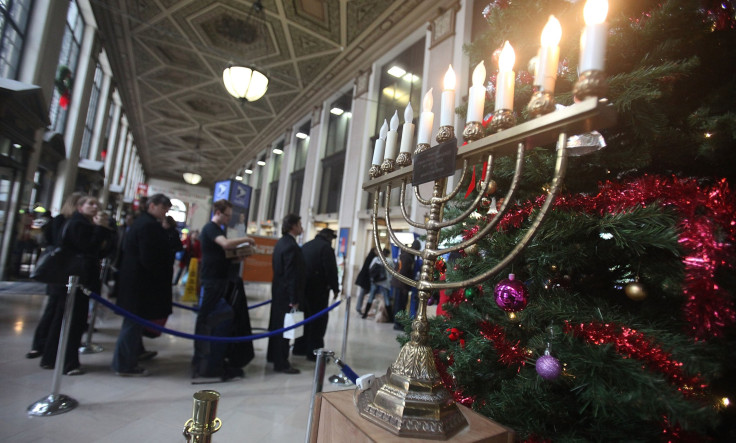Hanukkah And Christmas 2016: How Often Do The Two Holidays Overlap And Why Don’t They Always Coincide?

There will be gift-giving as well as trees and menorahs aplenty this weekend as Christmas and Hanukkah exactly overlap for the first time in almost 30 years. Hanukkah may be seen by many non-Jews as the Jewish equivalent at Christmas, but it is rare that the two holidays coincide and even rarer still that they begin at the same time.
But, in 2016, the first day of Hanukkah will be Dec. 25, although in the Hebrew calendar days begin at sundown the day before meaning the celebrations will actually get going on Christmas Eve. The last time that happened was in 1978. The two holidays do overlap more frequently, the last time being five years ago when Christmas fell midway between the eight days of Hanukkah.
Despite all the moving around, both celebrations fall on the 25th of the month. The difference is that, while Christmas always occurs on Dec. 25 according to the Gregorian calendar, Hanukkah falls on the 25th day of the ninth Hebrew month of Kislev.
The Jewish calendar is lunisolar, meaning it is coordinated according to both the moon phase as well as the seasons determined by the sun. It is about 11 days shorter than the Gregorian calendar, a discrepancy that is resolved by adding a 13th month every two to three years. It means Hanukkah can occur any time from late November through to late December.
For a long time, the celebration of the birth of Jesus Christ was even a fixed day on the solar calendar. Early Christians didn’t celebrate it at all and the Gospels of Matthew and Luke, which provide the only accounts of Jesus’ birth in the New Testament, provide no concrete detail in terms of dates. Indeed, there is even significant doubt over the year.
The conclusion that He was born in the midst of winter does not correlate with the accounts of shepherds in the field with their sheep. Instead, it is believed by many that the date was chosen to roughly coincide with Roman Pagan festivals, such as Sol Invictus, in order for the celebration to take hold throughout the Roman world. It wasn’t until the fourth century that Jesus’ birth came to be officially marked on Dec. 25.
© Copyright IBTimes 2024. All rights reserved.





















